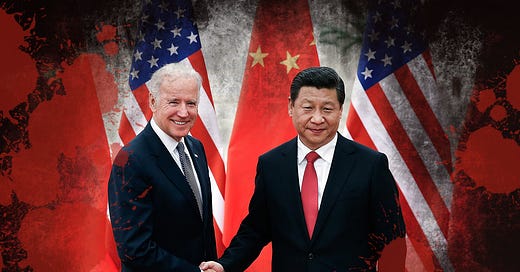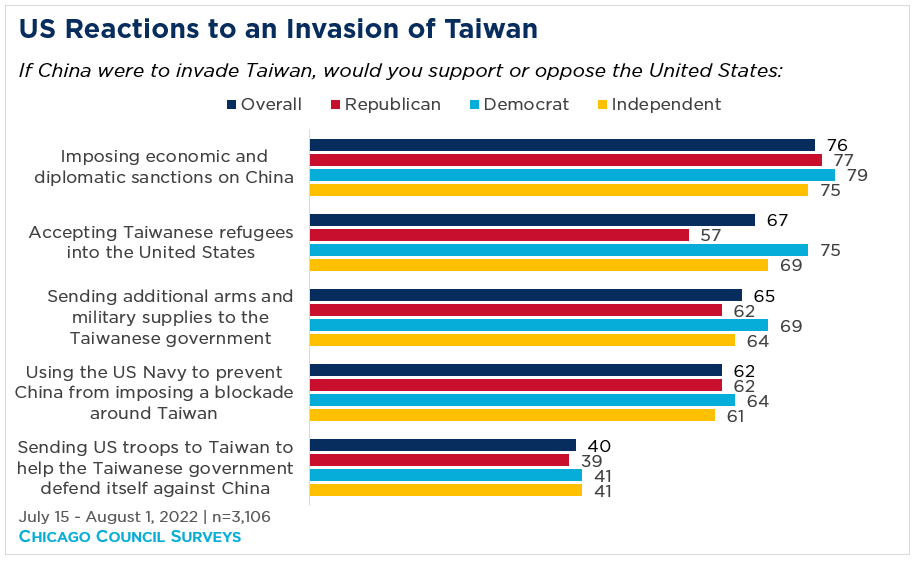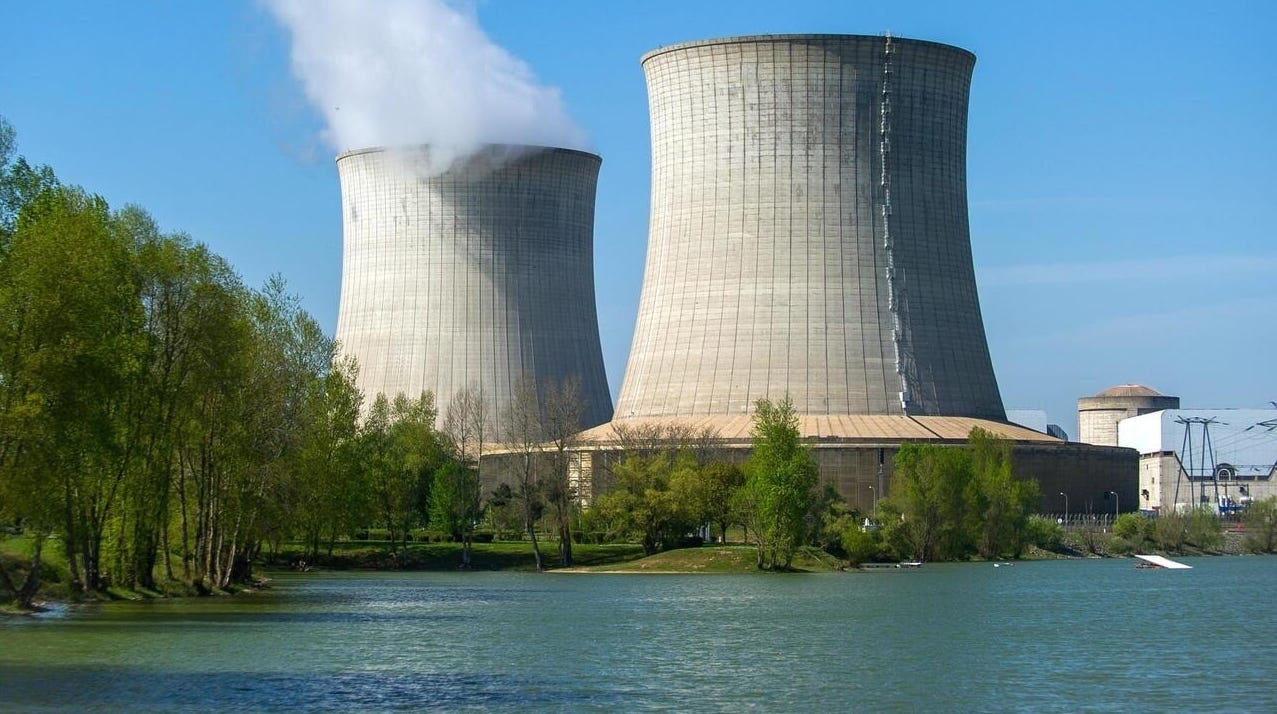Earthling: Do Americans support war with China over Taiwan?
Plus: Lab-grown proto-humans, space economy booms, why recent bipartisanship could be a bad sign, and more.
If China invades Taiwan, what kind of response would Americans support? According to new survey data from the Chicago Council on Global Affairs, only 40 percent would support sending US troops to defend the island. But 62 percent would support “using the US Navy to prevent China from imposing a blockade around Taiwan.” No telling what that number would have been if the phrasing had been less benign and more candid—like, “engaging in air and sea battles with China to prevent it from imposing a blockade around Taiwan.”
Americans’ favorability ratings for Taiwan were the highest in the survey’s 44-year history (60 on a 0-100 feeling thermometer), while ratings for China hit an all-time low (32). But that doesn’t mean Americans have lately gotten more militaristic in their attitude toward China. Foreign policy commentator Daniel Larison noted on Twitter that last year the same poll found a majority of Americans supported sending troops to Taiwan in the event of a Chinese invasion.
Larison thinks the American people are moving in the right direction—but worries that the foreign policy establishment is not. Writing in Responsible Statecraft, he points to a recent piece in Foreign Affairs that calls for boosting military capabilities in the Asia Pacific to back up America’s increasingly bellicose rhetoric towards China.
As the Nonzero Newsletter argued earlier this month, the increased militarization of Taiwan, however well-intentioned, could wind up backfiring. Consider Ukraine: The influx of US arms during the Trump and Biden administrations may have made invasion more, not less, likely; from Putin’s point of view, this militarization was turning Ukraine into a bigger and bigger security threat, and the longer he waited before stopping it, the harder stopping it would be.
We can’t know for sure whether the arming of Ukraine helped trigger the invasion, and, anyway, the analogy between Russia and China is far from perfect. But there’s enough food for thought here that a robust debate about the wisdom of rapidly building up Taiwan’s defenses would be nice.
And if you ask why there isn’t one: Maybe one reason (as that issue of the newsletter argued) is the treatment accorded people who have recently raised questions about whether, in retrospect, it was wise to arm Ukraine, expand NATO, and do various other things deemed threatening by Russia. These people get accused of “reciting Putin talking points” or “justifying” the invasion or doing various other things they don’t in fact mean to do. As Santayana didn’t exactly say (but would probably be willing to retweet): Those who discourage open and honest debate about the past are doomed to repeat it.
An Israeli biotech company has made progress toward developing transplantable organs via lab-grown embryos, reports MIT Technology Review. The medical startup Renewal Bio reported last month that it had grown “highly realistic-looking” mouse embryos from stem cells placed in a “mechanical womb”. After spending days in this device, bathing in blood serum and oxygen (and being spun around), the embryos developed beating hearts, flowing blood, and cranial folds—the most advanced stage such embryos have reached so far.
The company plans to use this basic technique with human tissue in the near future. As for ethical apprehensions: Renewal Bio has ideas it hopes can address those, such as genetically altering the seed cells so that the embryos never grow a head.
Does national cohesion depend on international tribalism? In America it increasingly does, argues Nathan Gardels, editor-in-chief of Noema Magazine.
Gardels cites as evidence recent bills subsidizing microchip production and renewable energy. Bipartisan backing for the former was driven partly by a desire to insulate the US from China economically. And Senator Joe Manchin’s pivotal support for the latter didn’t result from “a sudden conversion to ecological activism.” Manchin has cited a need to achieve “energy security” in the wake of Russia’s invasion of Ukraine.
While global tensions have helped smooth over America’s political dysfunction, “consensus built on the foil of foreign enemies is a double-edged sword,” Gardels warns. The danger is that US politicians, in order to build domestic support for their preferred policies, will paint foreign adversaries as evil—winning consensus at home by making international compromise and cooperation harder.
Nuclear energy is thought to be part of the solution to climate change—but it could also become a casualty of the crisis.
In France, wildlife-protection rules regulate the dumping into rivers of water that has heated up while being used to cool reactors—so this summer’s heat wave could threaten France’s nuclear output. France this week extended temporary waivers permitting nuclear plants to continue the discharge in spite of unusually warm rivers—an extension the government says is a “public necessity” amid Europe’s energy shortage.
France isn’t the only nation where scorching heat threatens nuclear output.








